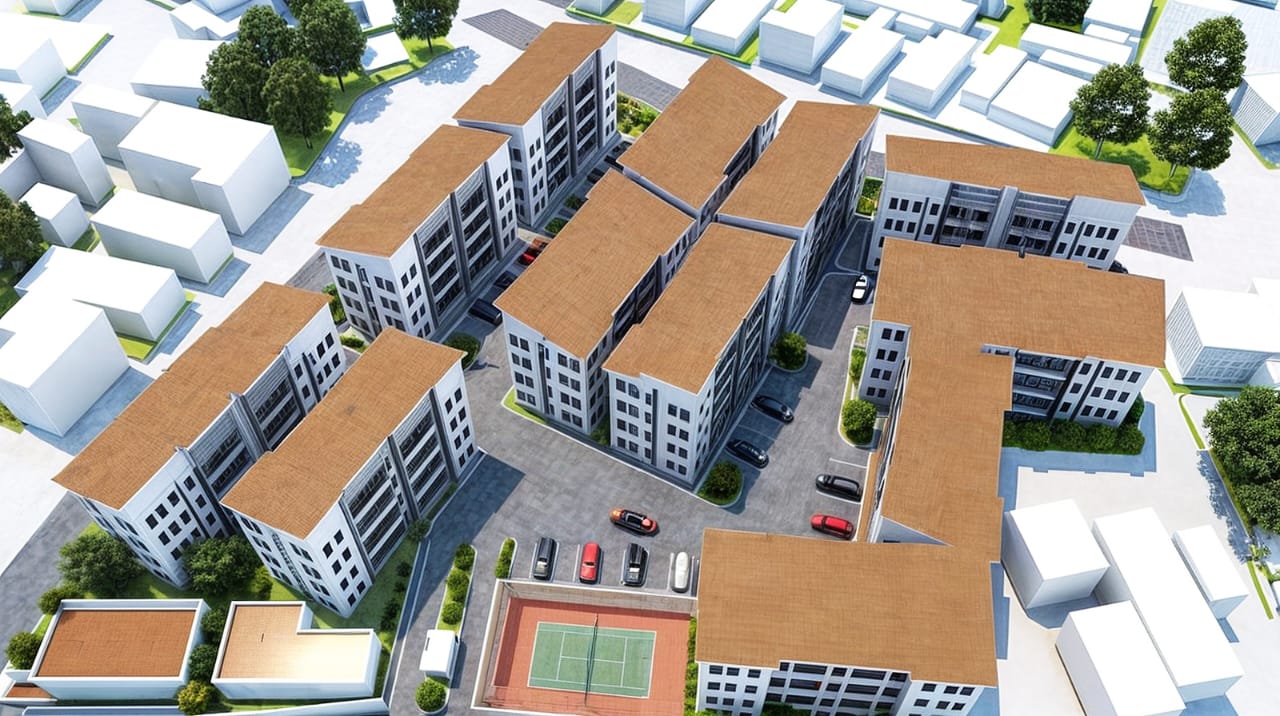Nigeria’s real estate sector has witnessed a significant shift in recent years, with short-let apartments becoming a preferred choice for travelers, business professionals, and expatriates. This trend is particularly evident in Lagos, Ibadan, Ogun and Abuja, these cities with distinct economic and social dynamics. While short-let apartments offer lucrative opportunities for investors, they also come with inherent risks.
The Growth of Short-let Apartments in Lagos, Ibadan, Ogun and Abuja
Short-let apartments, also known as serviced apartments, provide fully furnished living spaces for short-term stays. They have gained popularity due to urbanization, increased mobility, and the demand for flexible accommodation.
Lagos: The Commercial Powerhouse
Lagos, Nigeria’s economic hub, has seen a surge in short-let apartments, particularly in areas like Ikoyi, Lekki, Victoria Island, and Ikeja. The demand is driven by:
A growing population and urban migration.
The rise of remote work and digital nomads.
Increased tourism and business activities.
Reports indicate that short-let apartment prices in Lagos rose by over 200% in 2024, with Ikoyi experiencing the highest growth at 60%. This reflects the strong demand for upscale, flexible accommodation.
Ibadan: The Emerging Market
Ibadan, known for its rich history and affordability, is gradually embracing the short-let trend. The city’s appeal lies in:
Lower cost of living compared to Lagos and Abuja.
A growing middle-class population seeking modern housing.
Increased business activities and tourism.
Short-let apartments in Ibadan are gaining traction in areas like Bodija, Jericho, and Agodi, where demand for temporary accommodation is rising.
Ogun: The Strategic Gateway
Ogun State, particularly areas like Abeokuta, Sagamu, and Ota, is witnessing a rise in short-let apartments due to:
- Proximity to Lagos, making it attractive for business travelers.
- Industrial growth, leading to an influx of professionals.
- Affordable property prices compared to Lagos.
Abuja: The Political and Diplomatic Center
Abuja, Nigeria’s capital, has also embraced the short-let trend, particularly in districts like Maitama, Wuse, and Gwarinpa. The city’s appeal lies in:
A steady influx of diplomats, government officials, and expatriates.
A preference for secure and well-maintained accommodations.
The growing number of conferences and international events.
Opportunities in the Short-let Market
The rise of short-let apartments presents several advantages for investors and property owners:
1. High Rental Yields
Short-let apartments often generate higher returns compared to traditional rentals. Daily or weekly rates allow landlords to maximize earnings, especially in peak seasons.
2. Flexibility and Convenience
Unlike long-term leases, short-let arrangements provide flexibility for both landlords and tenants. Property owners can adjust pricing based on demand, while tenants enjoy hassle-free stays without long-term commitments.
3. Increased Demand from Tourists and Business Travelers
With Nigeria’s growing economy and international engagements, short-let apartments cater to professionals, expatriates, and tourists seeking comfortable alternatives to hotels.
4. Diversification of Real Estate Investments
Investors can diversify their portfolios by tapping into the short-let market, reducing reliance on traditional rental income.
Risks and Challenges
Despite the promising opportunities, the short-let sector is not without risks:
1. Regulatory Uncertainty
The Nigerian real estate market lacks clear regulations for short-let apartments. Government policies on taxation, zoning, and licensing could impact profitability.
2. High Maintenance Costs
Short-let apartments require regular upkeep to maintain their appeal. Cleaning, furnishing, and utilities add to operational expenses.
3. Market Saturation
As more investors enter the short-let space, competition intensifies. Oversupply in certain areas could lead to price wars and reduced occupancy rates.
4. Security Concerns
Short-let apartments attract diverse tenants, raising concerns about security and property damage. Landlords must implement strict vetting processes to mitigate risks.
Conclusion
The rise of shortlet apartments in Nigeria is a reflection of changing lifestyles, digital disruption, and the evolution of the real estate sector. For savvy investors and landlords, it represents a golden opportunity to tap into a high-yield niche. However, like any lucrative venture, it comes with its own set of challenges. Proper due diligence, effective property management, and staying abreast of regulations will be key to thriving in this fast-growing space.
As Nigeria continues to urbanize and embrace digital convenience, one thing is certain—the shortlet wave is only just beginning.

